Hey there! Navigating the complexities of chronic illness management can be quite challenging, but with the right strategies in place, it becomes much more manageable. From understanding your symptoms to creating a supportive environment, there are numerous approaches to improving day-to-day life. In this article, we'll dive into practical tips and helpful resources that can empower you to take charge of your health. So, let's explore these strategies together and set the stage for a brighter, healthier future!

Introduction and purpose of the letter
Chronic illness management strategies are essential for improving the quality of life for individuals navigating conditions such as diabetes, hypertension, or arthritis. Patients typically engage in a multidisciplinary approach, incorporating medical professionals, nutritionists, and physical therapists to tailor personalized care plans. This often includes medication adherence, regular monitoring of symptoms, and lifestyle modifications like balanced diets and exercise regimens. Support networks, including local support groups or online forums, play a critical role in emotional resilience and knowledge-sharing. Implementing these strategies can enhance coping mechanisms and overall health outcomes for individuals managing chronic illnesses.
Understanding the specific chronic illness
Effective chronic illness management strategies begin with a comprehensive understanding of the specific condition, such as diabetes or rheumatoid arthritis. Diabetes, for instance, impacts millions of people worldwide and requires consistent monitoring of blood glucose levels, typically using a glucometer. This condition prompts a strategic approach involving dietary changes, regular physical activity, and adherence to prescribed medication schedules, like insulin or metformin. In the case of rheumatoid arthritis, inflammation of the joints necessitates a multifaceted plan that may include pain management techniques, physical therapy, and anti-inflammatory medications like methotrexate. Recognizing the individual triggers and symptoms associated with each chronic illness enhances patient education and empowerment, leading to improved overall health outcomes and a better quality of life.
Outline of proposed management strategies
Chronic illness management strategies encompass various approaches aimed at improving patient quality of life and minimizing symptoms. Consistent monitoring of vital signs (like blood pressure, heart rate) plays a crucial role in daily health management. Integrating tailored dietary plans, such as a low-sodium diet for hypertension patients, can significantly impact overall wellness. Physical activity recommendations, like engaging in moderate exercise for at least 150 minutes weekly, help maintain physical health. Efficient medication management requires adherence to prescribed regimens, ensuring timely intake of medications for conditions such as diabetes or asthma. Regular follow-up appointments with healthcare providers, such as primary care physicians and specialists, facilitate ongoing evaluation and adjustment of treatment plans. Advanced technology, including mobile health applications, can effectively track symptoms, medication schedules, and lifestyle changes, providing patients with real-time insights into their health status. Support systems, involving counseling or support groups, also create a network for sharing experiences and coping strategies, enhancing mental and emotional well-being for those managing chronic conditions.
Importance of regular monitoring and adjustments
Chronic illness management requires meticulous attention to regular monitoring and timely adjustments to treatment protocols. Conditions such as diabetes (which affects approximately 422 million people globally) necessitate routine blood glucose level checks to maintain optimal health. Comprehensive programs often utilize portable glucose meters and continuous glucose monitoring systems that provide real-time data, empowering patients and healthcare providers to make informed decisions. Furthermore, conditions like hypertension (affecting nearly 1.13 billion people worldwide) demand consistent blood pressure evaluations--recommendations advise daily checks to identify fluctuations promptly. Implementing personalized management strategies, such as dietary modifications and physical activity plans, can significantly enhance quality of life. Regular check-ups with specialists, along with laboratory tests to monitor biomarkers, are crucial for effective management, enabling proactive adjustments to medication doses or therapy approaches as needed.
Encouragement and support resources available
Chronic illness management requires a multifaceted approach that combines medical treatment, lifestyle adjustments, and emotional support. Resources such as the American Chronic Pain Association provide valuable educational materials for patients dealing with persistent pain management, offering insights into coping mechanisms and self-advocacy. Additionally, local support groups, often hosted in community centers or online platforms like Facebook, connect individuals facing similar health challenges, fostering a sense of camaraderie and shared experience. Wellness practices, including mindfulness workshops and nutritional counseling, promote holistic recovery and empower individuals to take control of their health. Healthcare providers, such as rheumatologists or endocrinologists, also play a crucial role in creating a tailored care plan that addresses specific symptoms and enhances overall quality of life.
Letter Template For Discussing Chronic Illness Management Strategies Samples
Letter template of effective communication in chronic illness management
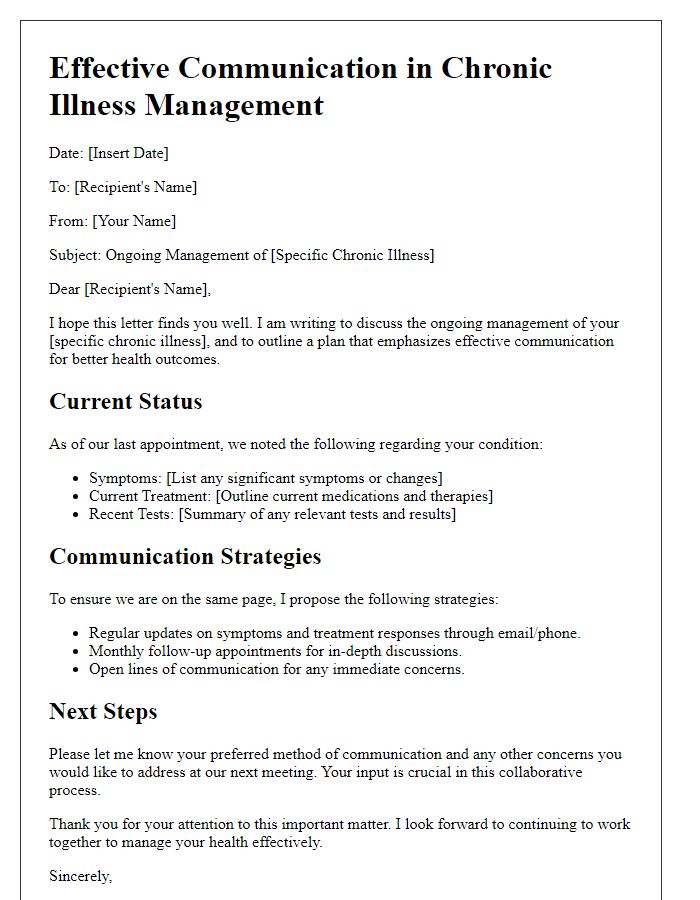
Letter template of support group resources for chronic illness management
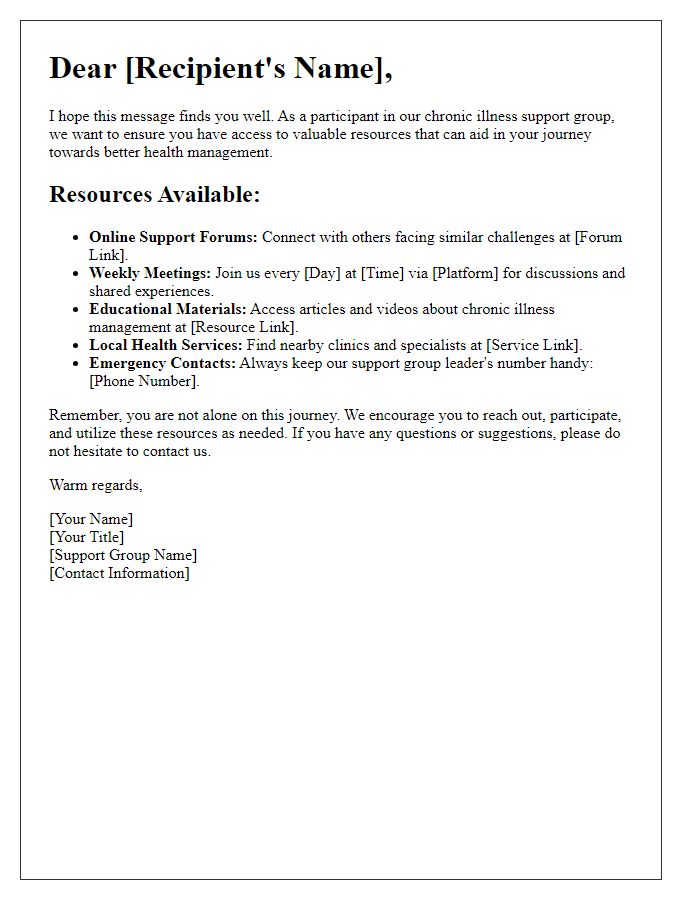
Letter template of medication management techniques in chronic conditions
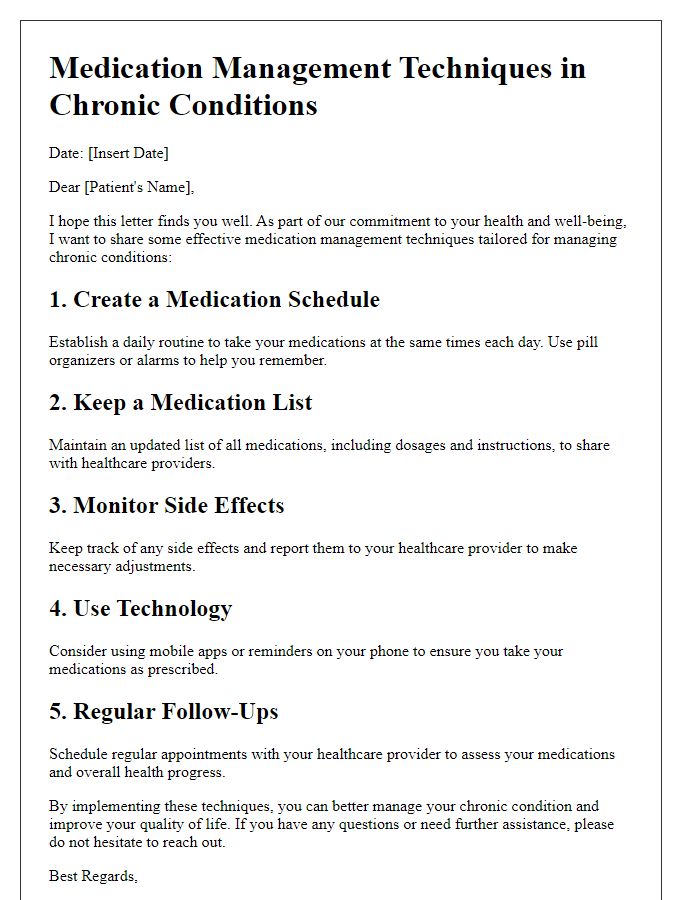

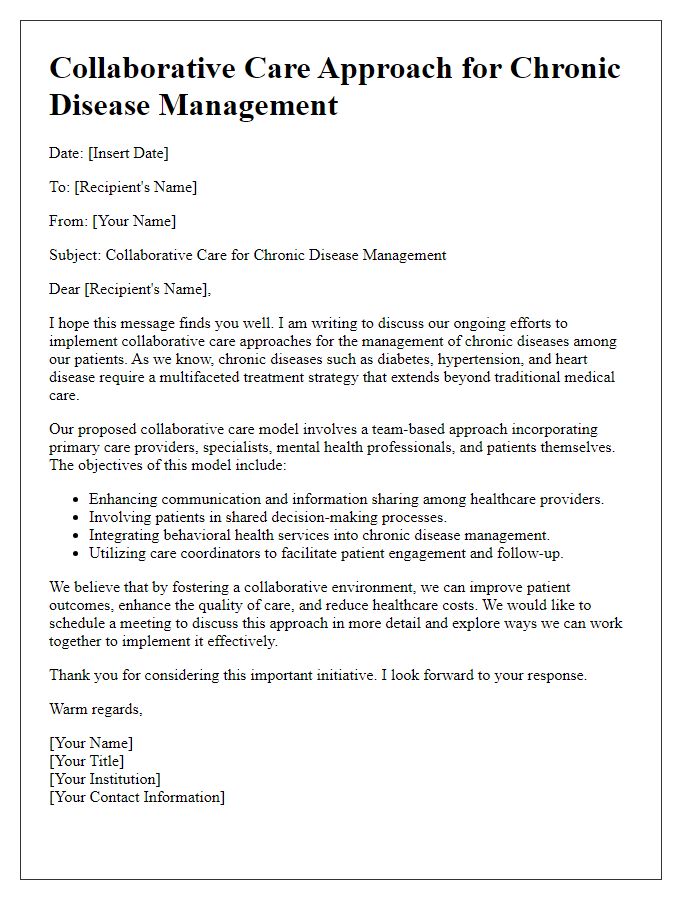
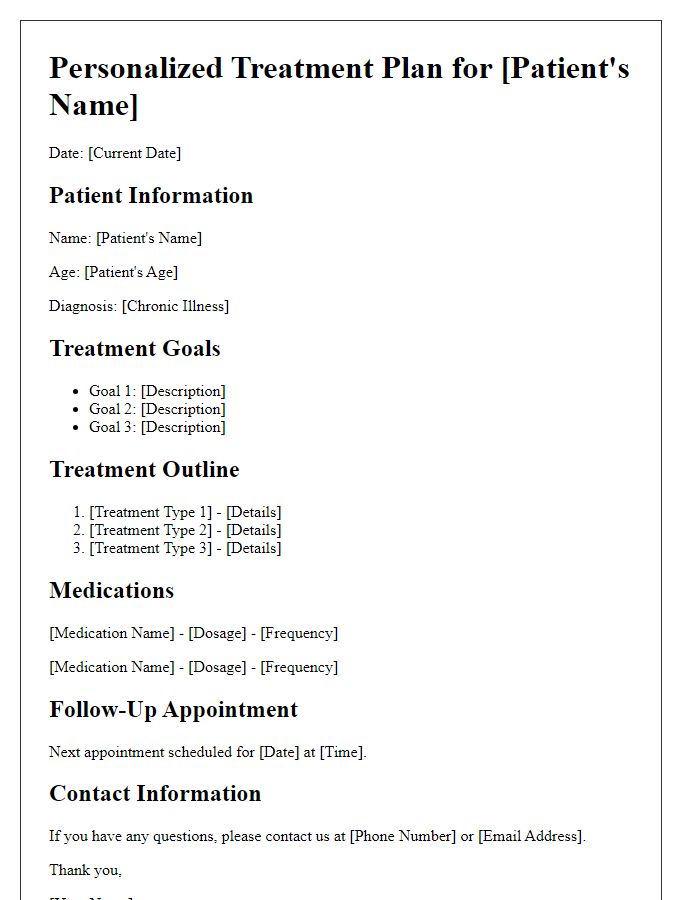
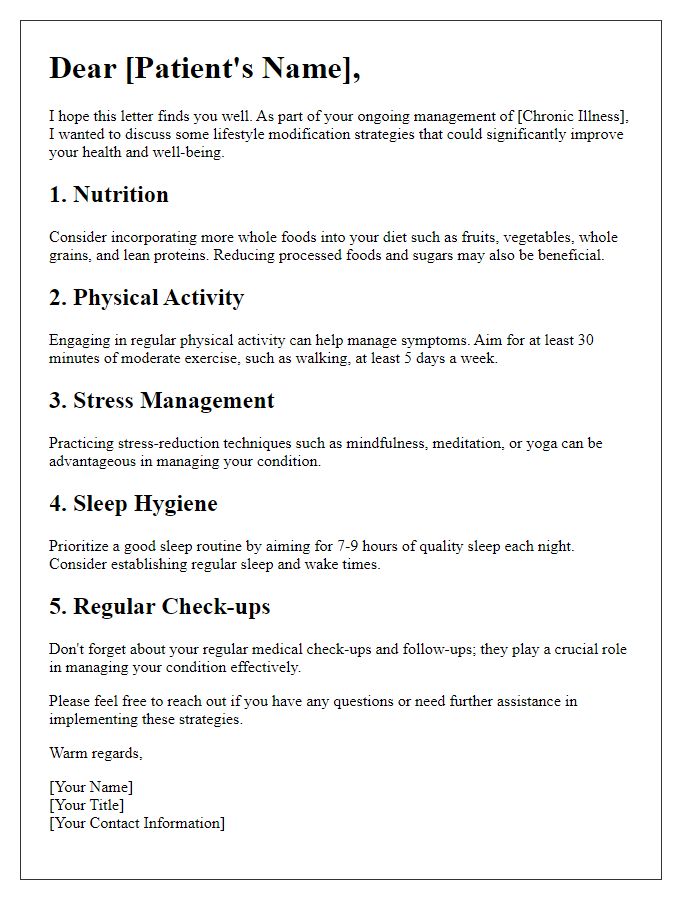
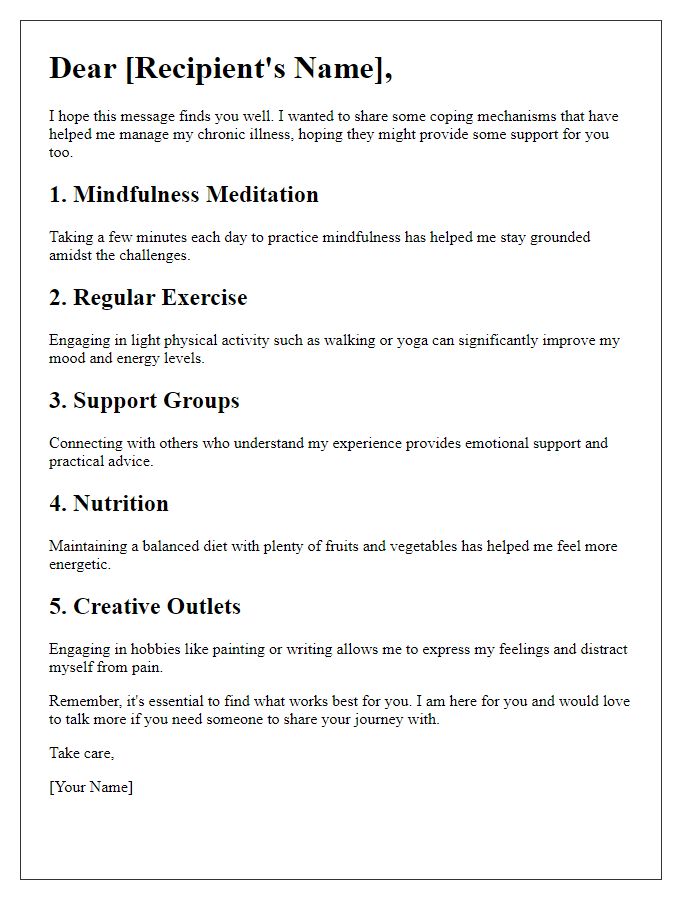
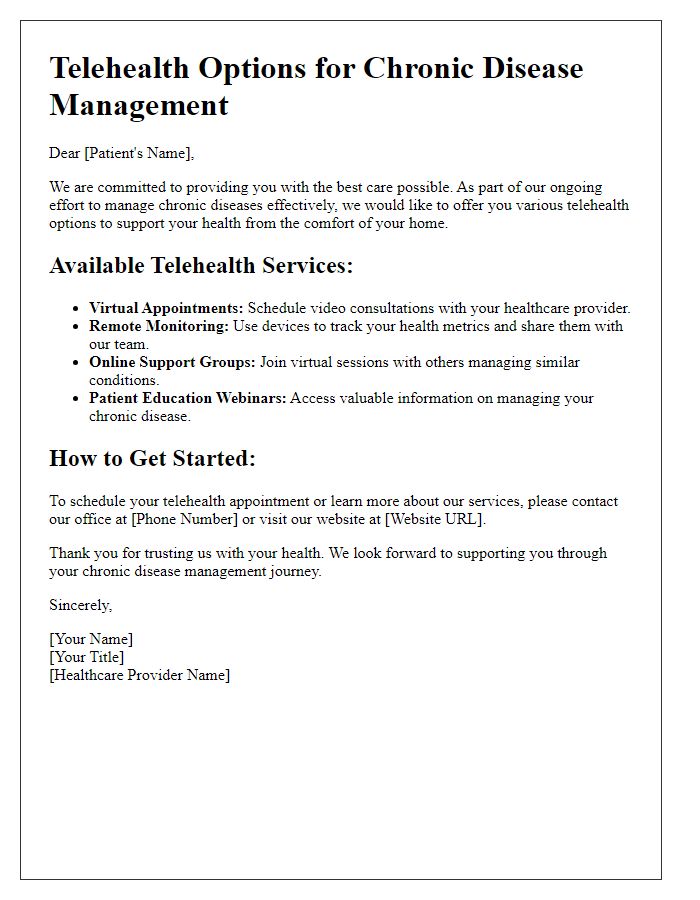
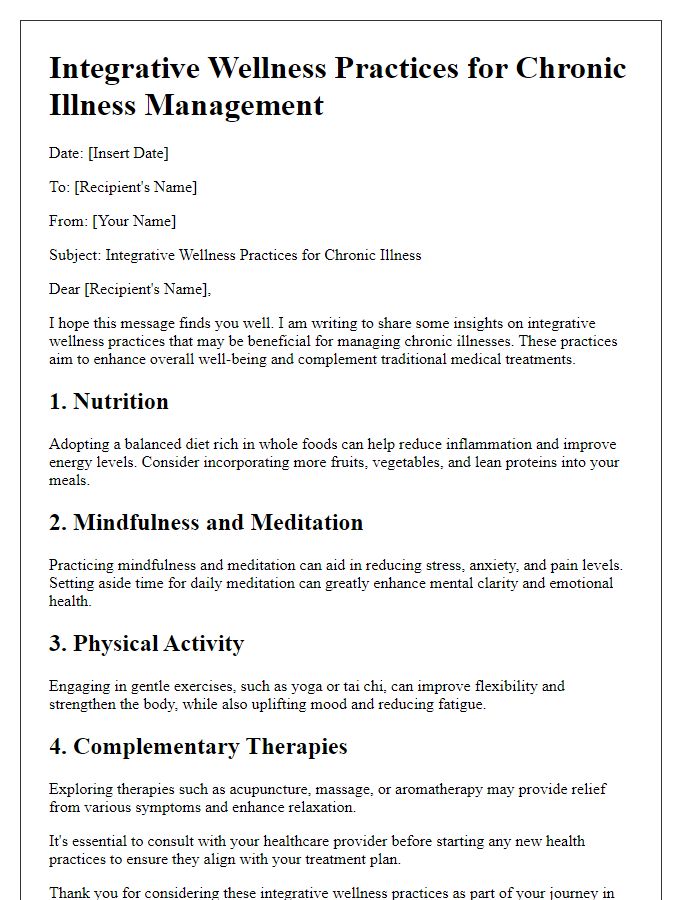
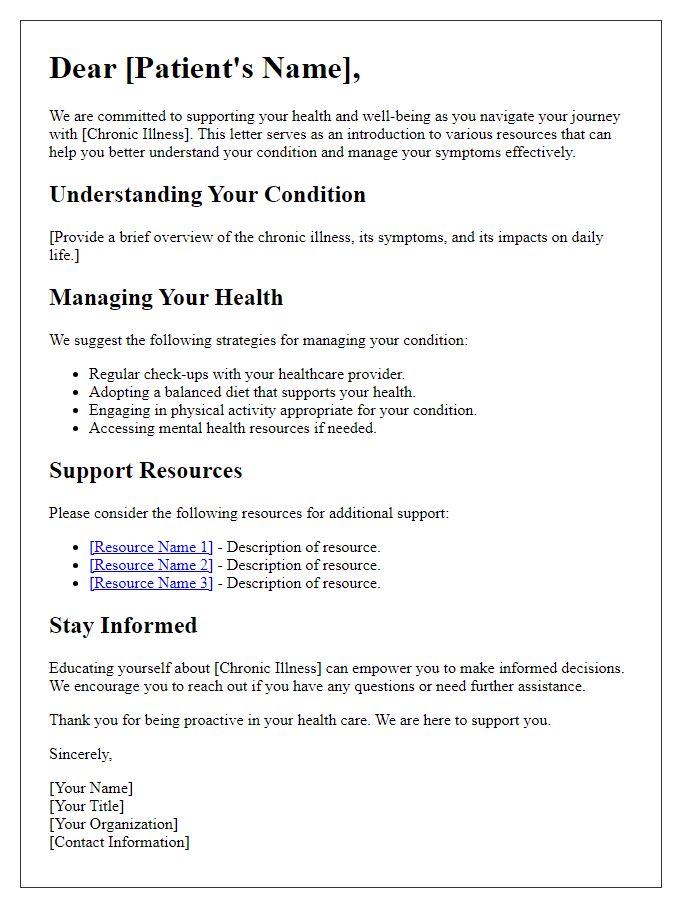


Comments